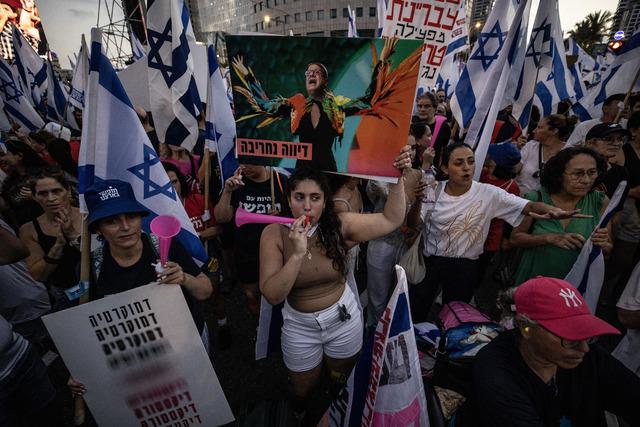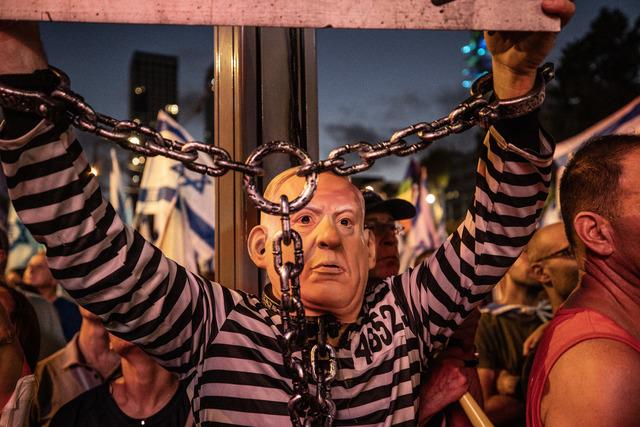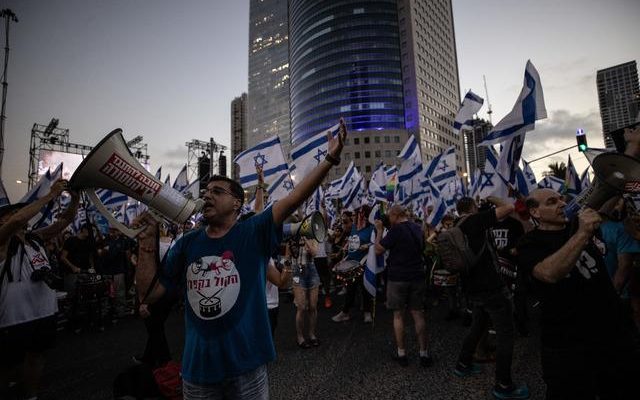Last minute: Controversial judicial reform in Israel was approved by parliamentary vote.
ATTORNEYS OF THE OPPOSITION LEFT THE ASSEMBLY
The Israeli Assembly gathered around the parliament for the 2nd and 3rd votes of the bill that will limit the powers of the Supreme Court in the government’s controversial judicial regulation, accompanied by the protests that have been going on since Sunday.
After the discussion of the draft law in the parliament was completed, voting took place. Opposition lawmakers left the General Assembly to boycott the bill.
The Assembly adopted the article that would remove the Supreme Court’s control over the executive in the judicial regulation of the government, with 64 votes in favor in the 2nd and 3rd ballots. 56 opposition deputies in the parliament did not participate in the voting.

After the vote in the Israeli Parliament, demonstrations against the government’s judicial regulation are expected to continue throughout the country, especially around the Israeli Assembly in West Jerusalem. Israeli police announced that 19 people have been detained during the demonstrations so far.
The law, which envisages abolishing the authority of the Supreme Court to overturn the government’s decisions by stating that they are “irrational” on grounds such as “does not serve the public interest, creates a conflict of interest”, was being discussed in the form of a “reasonable” bill.
While the draft law was still being discussed in the Parliament, it was reported that reconciliation negotiations between the Netanyahu coalition and the opposition were continuing, but no results could be obtained.

WHAT HAPPENED IN ISRAEL?
The “judicial reform” announced by Israeli Minister of Justice Yariv Levin on January 5 includes changes such as limiting the powers of the Supreme Court and the power to have a say in judicial appointments.
Prime Minister Benjamin Netanyahu announced on March 27 that he postponed the judicial regulation, which led to increasing mass protests and strikes across the country, but announced that they would bring the judicial regulation back to the agenda after the 2023-2024 budget was passed by the Parliament at the end of May.
The government had recently pushed the button again for judicial regulation after negotiations with the opposition stalled.
The Netanyahu government announced that the draft law that will remove the Supreme Court’s control over the government within the scope of the judicial regulation, after the first vote on July 11, will be brought to the Parliament on July 24 for the 2nd and 3rd votes.
Opposing the government’s “judicial reform”, thousands of Israelis, including fighter pilots, submarine officers, and other elite troops, had decided to resign as volunteers.
The Israeli press claimed that the Defense Minister Gallant was working to delay the draft law that would lift the Supreme Court’s control over the government after the reaction from the reserve soldiers in the army.
Senior figures in politics, army, security, economy and judiciary in Israel declared that they were against the government’s judicial regulation.
The protest movement against the judicial regulation of the Netanyahu government has been continuing its demonstrations for about 7 months.
